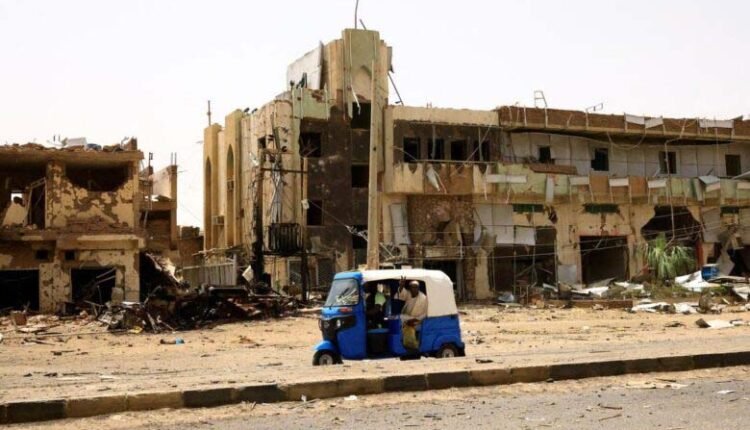Will the Liberation of Khartoum Lead to the Fall of El Fasher? Urgent Calls and Serious Warnings

Cairo – Sudanhorizon – Sabah Moussa
As the Sudanese army continues its significant victories in the capital, Khartoum, and nears full liberation of its three main cities, calls have emerged urging focus on El Fasher. Many emphasize that the war in Khartoum and Gezira has effectively ended and that the next phase will see intensified battles for control of El Fasher.
A Way to Escape
Sudanese Minister of Minerals, Mohamed Bashir Abunamo, initiated these calls, asserting that the war in the capital and Gezira is over. He claimed that the remaining militia forces in these areas were no longer fighting the army but rather seeking an escape route to Darfur. Abunamo urged military and joint force leadership to immediately redirect their strike forces towards Darfur, warning that any delay would be costly.
A Message to the Leadership
Similarly, the head of the Sudan Justice Alliance (Tisa), Bahr Idris Abugarda, sent an open letter to the Commander-in-Chief of the Armed Forces and Chairman of the Sovereignty Council, General Abdel Fattah Al-Burhan, echoing Abunamo’s concerns. In his letter, Abugarda warned:
“To ensure we do not grant this existential threat to our nation another opportunity, after coming so close to eliminating it, and to solidify our remarkable victories, I urge you (Al-Burhan) to personally oversee and lead within the next 48 hours the deployment of three military convoys from various ready combat fronts to break the siege on El Fasher and liberate the rest of Darfur.”
El Fasher Remains Resilient
Responding to these concerns, Sudanese Armed Forces spokesperson Brigadier General Nabil Abdullah reassured that El Fasher remains resilient against the Rapid Support Forces (RSF). Speaking to Sudanhorizon, he affirmed:
“Our forces’ efforts, their strong will, and steadfastness—alongside joint forces and the popular resistance—will thwart any attempt by the militia to take over the city.”
Potential Risks
Former Sudanese Minister of Health, Bahr Idris Abugarda, explained why he sent this urgent appeal to Al-Burhan. Speaking to Sudanhorizon, he noted that RSF fighters retreating from battlefronts in Khartoum and central Sudan have been instructed to regroup in Darfur, with El Fasher as their key target.
However, he clarified that this does not necessarily mean the city will fall. His concern lies in the heavy weaponry RSF has recently deployed, including strategic drones that have caused significant casualties—such as the attack on the Saudi Hospital in El Fasher, which killed 70 civilians.
“While direct attacks are currently ineffective, the large numbers of forces being relocated from the capital to these fronts could have an impact. If action is not taken swiftly, the risks will increase. We must not provide them any opportunity,” Abugarda warned.
He dismissed concerns that his warnings might indirectly benefit the RSF, arguing instead that readiness is essential.
“Despite their massive defeats, we must prepare for any move they might attempt. The militia’s presence in Khartoum and Kordofan is now unsustainable, and the army can expel them in a short time.”
Psychological Warfare
Crisis management and negotiation expert at the Centre for Strategic Studies, Dr. Amin Ismail Majzoub, downplayed fears about El Fasher, asserting that local Darfur forces and joint units are responsible for securing the city.
Speaking to Sudanhorizon, Majzoub acknowledged the RSF threat but described it as a form of “psychological warfare.” He insisted that RSF lacked the military capability to seize El Fasher or establish an alternative government in Darfur.
“The battle effectively ended last week in Khartoum, Gezira, and other regions. The militia has retreated, lacks central command, has no supply lines, and its internal communications have been severed,” Majzoub explained.
He also pointed to internal strife within the RSF, particularly between various tribal factions.
“There is no real risk to El Fasher, Darfur, or the legitimacy of the Sudanese government. The RSF now has two choices: surrender or fight until they are completely eliminated,” he stated, assuring that El Fasher is safe.
He urged the public to ignore rumors and misinformation meant to spread panic.
A Dangerous Scenario
However, Al-Tayyar newspaper’s editor-in-chief, Osman Mirghani, disagreed and warned of a “real crisis” unfolding in El Fasher.
Speaking to Sudanhorizon, Mirghani acknowledged the resilience of the army and joint forces, which have successfully defended the city against nearly 170 attacks. However, he noted that RSF’s relentless assaults have drained military resources.
Adding to the challenge, Mirghani revealed that forces from Libya and Chad have been deployed to reinforce RSF in El Fasher.
“The attempt to establish a rival government in Darfur is a highly dangerous scenario with serious consequences,” he cautioned.
Mirghani stressed that Chad, in particular, would face instability if such a plan succeeded due to historical ties and conflicts with Darfur.
“While the army can repel these attacks, prolonged fighting will only extend the war, preventing the military from shifting focus fully to El Fasher,” he said.
A New Battlefield?
Mirghani warned that Darfur’s proximity to Northern Sudan poses an additional risk.
“Any infiltration from Darfur into the Northern State would be akin to breaching a penalty area in a football match,” he analogized.
With the army currently advancing southward from Shendi, a northern breach would escalate the conflict into an entirely new phase.
“The warnings about El Fasher’s fall are completely valid and time-sensitive. Around 3,500 families have already fled the city in anticipation of an RSF takeover,” he revealed.
Mirghani further speculated that RSF might attempt to declare a rival government in Darfur, even without capturing El Fasher. He dismissed the recent dissociation of the Taqaddum civil coalition from RSF-aligned factions as mere political maneuvering, suggesting that Taqaddum remains involved in plans for an alternative government.
“While no international body may recognize such a government immediately, even a single foreign endorsement would complicate the situation significantly,” Mirghani warned.
He urged the Sudanese government to intensify diplomatic engagement with the international community to counter this threat to block any legitimacy for such an entity.
Shortlink: https://sudanhorizon.com/?p=3985

